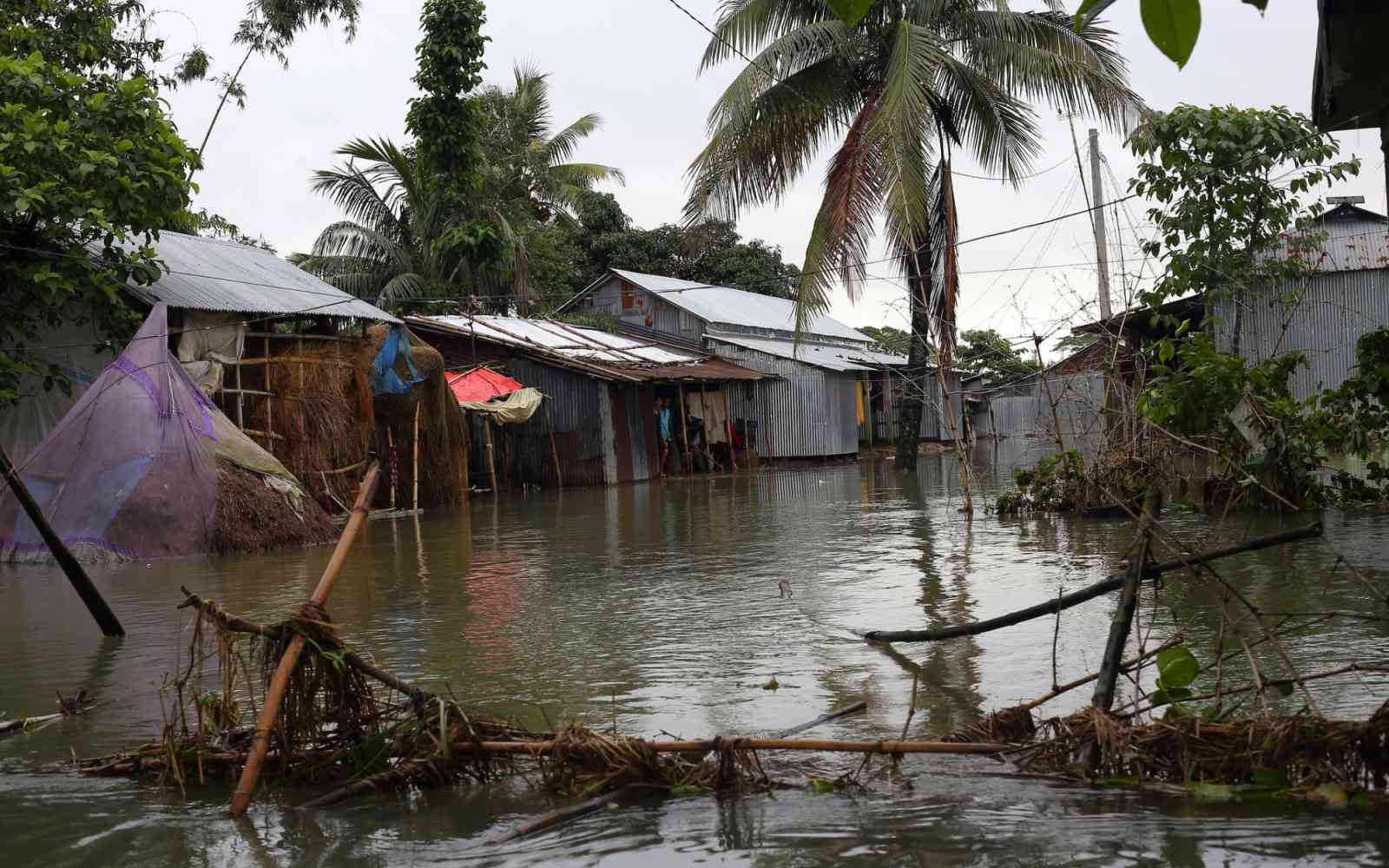The United Nations Office for Project Services (UNOPS)
Rethinking the digital landscape for sexual and reproductive health

Intersecting challenges can keep Myanmar’s youth from accessing information about sexual and reproductive health. New avenues are opening up possibilities.
Limited healthcare infrastructure in remote and conflict-affected areas, coupled with the absence of comprehensive sexual education in schools, presents challenges for Myanmar’s youth. Field-based sexual and reproductive health educational projects are often confronted with community resistance or travel restrictions. Moreover, in Myanmar’s diverse ethnic communities, prevailing socio-cultural norms often stigmatize discussions about sexual and reproductive health, making it difficult for youth to access important and protective information.
Left uninformed, many young people find themselves vulnerable to a range of risky choices and behaviours – unsafe sex, unintended pregnancies, unsafe abortions, gender-based violence, and sexual exploitation and abuse.
In search of answers, Myanmar's youth have increasingly turned to online platforms for crucial health information, driven by the accessibility of budget-friendly smartphones and affordable data plans. Social media platforms have become popular avenues for organizations to share health-related content, a trend accelerated by the COVID-19 pandemic. However, amidst the vast array of online content lies misinformation and inappropriate material for young audiences.
The problem underscores an urgent need for easily accessible digital platforms that provide reliable sexual and reproductive health information, tailored to youth needs.
One successful initiative is Ma Shet Ne (Don't Be Shy), a digital programme launched in 2019 by BBC Media Action and supported by the UNOPS-managed Access to Health Fund. Ma Shet Ne utilizes various social media channels to deliver comprehensive sexual and reproductive health education, facilitate open dialogue and connect youth with healthcare providers.
Understanding the landscape
In Myanmar, Facebook remains the dominant social media platform, followed by TikTok and YouTube. That – along with the fact that the vast majority of young people use mobile phones to access the internet – has informed the design of the programme. Another crucial consideration is the need to make these digital programmes accessible offline, especially during times of instability and crisis.
Poor internet speeds and network disruptions are especially prevalent in the more remote areas of Myanmar – often home to those most in need of credible information. Ma Shet Ne works to reach more people without internet access by printing posters and distributing memory sticks and DVDs with sexual and reproductive health content to implementing partners, who display the content on TVs in clinic waiting areas. The programme links users seeking information online to offline services by integrating referral directories into its messaging platforms.
Safe spaces for all people
Ma Shet Ne’s promise of anonymity is of great importance when accessing information about traditionally taboo subjects. To be truly inclusive, digital health solutions must offer accessibility features for people with disabilities and ensure that content is available in different minority languages.
Each month, the Ma Shet Ne project produces special sexual and reproductive health content tailored to people with disabilities, addressing their specific needs. In one example, a sign language component was added to content to reach those with hearing and reading difficulties.
A responsive and creative approach
The Ma Shet Ne team actively monitors comments and direct messages each month, conducts annual surveys to understand audience questions and information gaps, and adapts content accordingly. With over 300 messages a month, the program works closely with healthcare professionals with the training and expertise to address specific inquiries about sexual and reproductive health.
Using multimedia formats such as videos, infographics and interactive quizzes, Ma Shet Ne departs from traditional information dissemination methods in Myanmar. Using games makes learning about health topics engaging and relatable for young audiences. Since it started, Ma Shet Ne has reached over three million people, mostly between 18 and 34 years of age, who engage with the content.
It should be noted that while we focused on Ma Shet Ne for this piece, we recognize the other Access to Health partners who have also been working tirelessly on digital resources for sexual and reproductive health. Together, these projects open doors to a digital future with immense promise in overcoming barriers to sexual and reproductive health education among youth in Myanmar – helping safeguard their well-being. They also demonstrate the possibilities for reaching vulnerable communities with critical health information.
Myo Yar Zar and Aung Hein
Myo Yar Zar is a medical doctor and programme manager at the UNOPS-managed Access to Health Fund. With over 18 years of experience in public health, he oversees grants focused on sexual and reproductive health, maternal and child health, HIV, tuberculosis and malaria, ensuring that health information and services reach those most vulnerable in Myanmar.
Aung Hein is a public health professional with over 15 years of experience, specializing in social behaviour change communication, demand creation, business development and digital solutions. He is a senior manager at BBC Media Action Myanmar, overseeing health, livelihood and nutrition, social inclusion and migrant worker projects.













